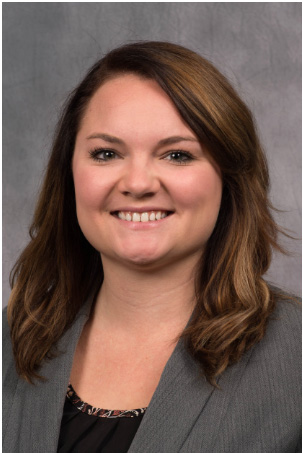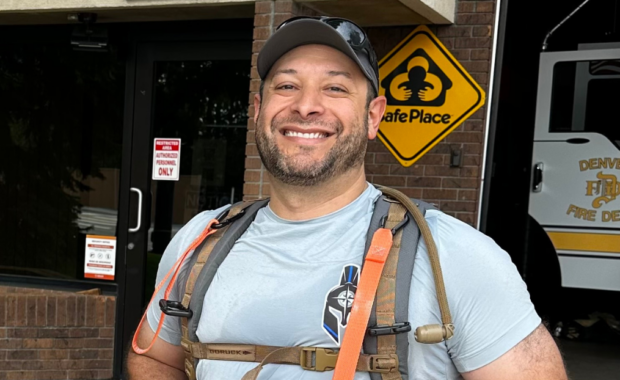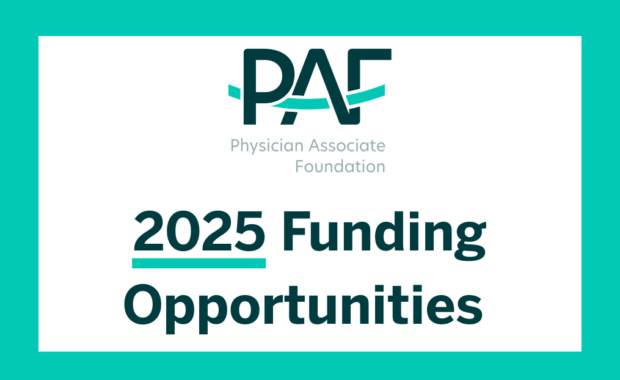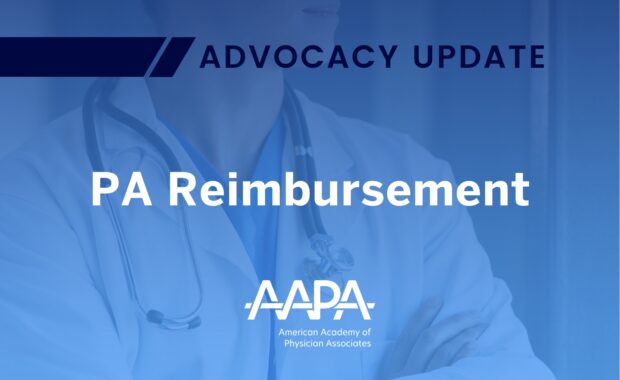As a Future Prescriber, I Pledge to Pause
PA Student Shares Commitment to Responsible Prescribing
February 1, 2019
By Alexa Brooks, PA-S

As local, state, and federal leaders continue to implement solutions to address the opioid abuse epidemic, it is important that every individual, especially those working in the medical field, do their part to prevent further abuse and misuse of prescription opioids.
As a PA student, I recognize the important role healthcare providers play in the evolution of this challenging situation. PAs have the unique ability to create authentic relationships with our patients and should be catalysts for preventing the progression of this epidemic. We have taken an oath of honor to put the health, safety, and privacy of patients first and adhere to a professional code of ethics.
[The PA Foundation: empowering PAs to improve health through philanthropy and service.]
First and foremost, we need to address the stigma healthcare providers may have toward patients with substance use disorders. The key to treating a patient with a substance use disorder is to lead with support and compassion, not judgment.
Pledge to Pause
During AAPA 2018, I signed a Pledge to Pause. This pledge, developed by Allied Against Opioid Abuse (AAOA) and the PA Foundation, urges providers to take a moment to pause and talk with patients before prescribing an opioid medication. This is an important reminder to take the time to educate our patients, increase awareness about the risks of certain prescriptions, and discuss the importance of safe storage and disposal. It also encourages us to keep an open mind and to individualize treatment — to pause before we prescribe and diagnose, and to consider each individual patient’s family history, environment, and circumstances.
[Join us in Denver, Colorado for AAPA 2019.]
By “pledging to pause,” my fellow PA students and I committed to doing our part to provide patients with everything they need to know to make the most informed decisions about appropriate pain management treatment for themselves and their families.
Patient education needed
The need for direct, thorough patient education is underscored by the fact that nearly half of the people who misused prescription pain relievers in 2015 obtained them from a friend or family member.
The PA Foundationand other partners engaged in AAOA are committed to promoting this type of patient and consumer education. The mantra: by safely storing and disposing of medications, we can all help prevent misuse and abuse. They are working with providers and pharmacists to reach patients with this important information.
It could be as simple as talking to our patients about safe storage and creative reminders like putting up a sticky note that reads “Don’t forget to lock me!” in their medicine cabinet. Or providing them with information about disposal locations in their area.
Approaches to curbing misuse
It’s a similar concept to informed consent for surgery. We are trained to talk to a patient, for example, about the long-term risks and benefits of a discectomy surgery for a herniated disc compared to other conventional treatment alternatives like physical therapy or NSAID medication, in order to ensure they are aware of the risks. Through this conversation the patient can make an educated decision. We need to do the same when it comes to educating patients about opioid prescriptions.
I’ve also learned about other approaches to curbing prescription opioid misuse. For instance, I was introduced to the pharmacy’s “partial-fill prescription option” when I took the Pledge to Pause. This option — available in some states — allows patients to request that the pharmacist only provide part of the prescription upfront, leaving the remainder available at the pharmacy for the patient to pick up at a later time if needed. This can limit the number of pills coming into the home, thus reducing the potential for misuse and abuse.
The Pledge to Pause is a good reminder that we are committing to something greater than ourselves. As the future generation of prescribers, we have a responsibility to our patients and to the people around us, which includes taking time to ask the right questions and recognize potential red flags for at-risk patients.
As we work to make a meaningful difference in preventing future misuse and abuse of opioids, I hope current and future PA students, along with all other healthcare providers, will join me in working together to instill change and help reverse the deadly effects of the opioid epidemic.
Editor’s note: The PA Foundation has joined with other healthcare organizations in Allied Against Opioid Abuse (AAOA), a partner-based educational initiative to prevent prescription opioid abuse and misuse. AAOA aims to arm healthcare providers, patients and their families with resources to help prevent old or unused prescriptions from ending up in the wrong hands. This article originally appeared on AAOA’s website. It has been updated and reprinted here with the author’s permission.
Alexa Brooks is a PA student at Idaho State University. She can be reached at [email protected].
Additional Resources
PA Foundation
Allied Against Opioid Abuse
Thank you for reading AAPA’s News Central
You have 2 articles left this month. Create a free account to read more stories, or become a member for more access to exclusive benefits! Already have an account? Log in.


